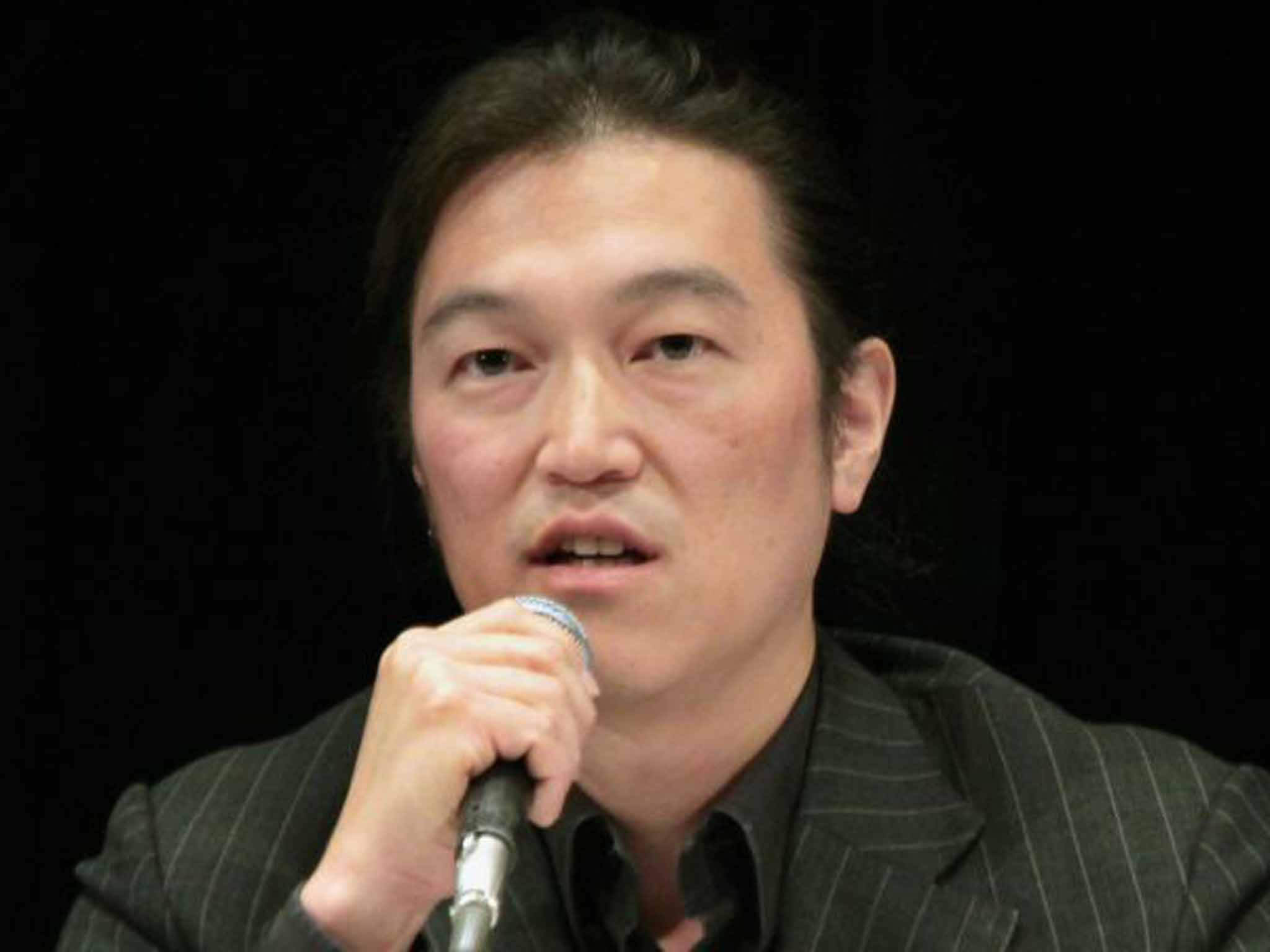Kenji Goto: Journalist murdered in Syria who highlighted the horrors of war by focusing on its effects on children and families
He gained respect and made his name by going to areas where Japanese networks were unwilling to send their staff

A man of charm, vigour and confidence, the author and journalist Kenji Goto survived more than two decades of bringing home the news of events from some of the most perilous corners on earth before his untimely death in Syria at the age of 47. The man with the dark top-knot – reminiscent to any cinema-goer of the style of the heroic seven Samurai adventurers of Kurosawa's classic film – awoke Japan to foreign affairs once considered too alien to be noticed.
A shade more raffish in appearance, with an earring in his right ear, than the presenters interviewing him on Japan's NHK channel, he detailed so vividly the plight of children and families in far-off places that interest was stirred towards trouble zones from Sierra Leone to Afghanistan. He also reported from Albania, Kosovo, Estonia, Liberia, Somalia, Iraq and Syria.
He founded and ran a Tokyo news agency, Independent Press, from 1996, and in 2006 won the Sankei Shimbun children's book prize. A father of three daughters, to get his message across he often concentrated on the ordeals faced by families trying to live out their lives against the backdrop of war. Japan's pacifist stance since the Second World War gave him, he believed, both the duty and the opportunity to go to places where British or American journalists might not. As well as making documentaries with footage of him walking through a heavily-fenced border crossing, traversing a hidden path amid vegetation with concealed razor-wire or recording children's zest for play amid the grimness, he made a point of speaking to the rising generation at home.
"He exerted great effort to tell Japanese children in plain language as much as possible," an acquaintance said. In the city of Nagasaki he is remembered as having inspired children at a welfare facility, sharing with them a meal of curried rice and showing them photographs and his radio. "Make every day in life meaningful," he told them, and his agency's website bears the legend: "The world with you".
He followed the footsteps of normal people getting on with their lives, he said, and that was how he reached dangerous places: they showed him the way. "The front lines of my reporting are where people suffer the unbearable and yet where they are still trying to live", he explained to a Tokyo newspaper. He gained respect and made his name by going to areas where Japanese networks were unwilling to send their staff. He was nevertheless very careful, and always worked with local people who could tell him what to avoid, a senior editor said.
One tribute described him as the voice of those who could not speak for themselves. In Aleppo he alerted the world to the city's sufferings under barrel-bomb attack, and he had also trained local people in how to report news.
An al-Qaeda-affiliated group that captured him three years ago released him after he explained his purpose, and an Iraqi soldier who held a gun to his head backed down. "It was his passion to highlight the effects on ordinary people, especially through the eyes of children, and to inform the rest of us of the tragedies of war," his wife, Rinko, said. The couple had two daughters, one born three weeks before he left for his last assignment, the other aged two. He also had a daughter from an earlier marriage.
His prize-winning book, I Want Peace Rather Than a Diamond (2005) was the true story of a boy from Sierra Leone recovering from the horrors of having been forced to serve as a child soldier. And in If I Could Go To School he wrote about a 10-year-old Afghan girl denied an education because her family were too poor.
Earlier in his career he had focused on the ravages of Aids across Africa and written about a family in Rwanda who had survived civil war. In 2003 he received national exposure for his documentary, DVD and book Welcome to our School, which featured children of Iraq and Afghanistan speaking to counterparts in Japan. Numbers of students had taken up courses in humanitarian studies after hearing his increasingly popular lectures, educationalists said.
The Great Sendai Earthquake devastated the coast of north-eastern Honshu, Japan's main island, in March 2011. In September that year Goto, who was born and educated in Sendai, addressed the annual meeting of the Japanese Society of Psychosomatic Paediatrics: "When such disasters occur, children may end up left behind," he said, and suggested ways of supporting children who refused to go to school.
After junior high school in Sendai, Goto attended Hosei University, Tokyo, graduating in 1991. He learned his trade with a media production company and worked with the UN, in particular with Unicef and the UN Refugee Agency. He embraced Christianity in 1997, attending the Denenchofu Church of the interdenominational United Church of Christ.
He is survived by his mother, Junko Ishido, his wife Rinko Jogo, his three children, and by his elder brother, Junichi Goto. "My son's last act was to go to Syria to help a fellow Japanese [Haruna Yukawa, a contractor murdered by Isil militants in January 2015]," Goto's mother said. "I want people to understand my son's kindness and courage."
Kenji Goto, journalist: born Sendai, Japan 23 October 1967; twice married (three daughters); death announced 31 January 2015.
Subscribe to Independent Premium to bookmark this article
Want to bookmark your favourite articles and stories to read or reference later? Start your Independent Premium subscription today.

Join our commenting forum
Join thought-provoking conversations, follow other Independent readers and see their replies